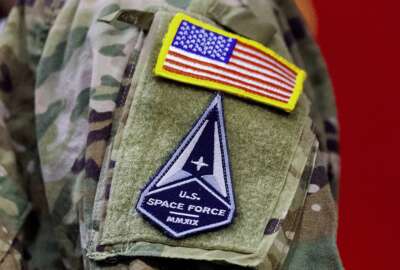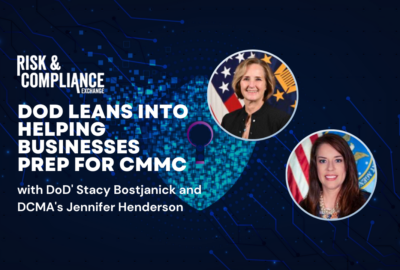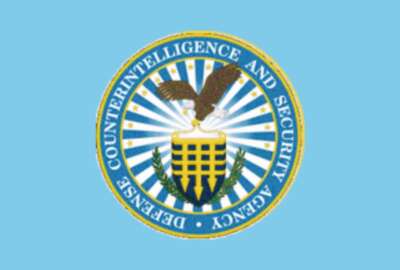Two academic research groups team up to help solve national security questions
The Defense Department wants to spur research by students — to take on national security questions.
The Defense Department wants to spur research by students — to take on national security questions. Two DoD-backed academic groups will help that happen, establishing a partnership between a federally funded research and development center at MIT and the National Strategic Research Institute at the University of Nebraska. For what happens next, a research director at the Institute, Dave Roberts joins the Federal Drive with Tom Temin.
Interview transcript:
Tom Temin Mr. Roberts, good to have you with us.
Dave Roberts Thank you. Nice to be here.
Tom Temin And tell us more about this partnership. I mean, that’s a pretty distant partnership, the University of Nebraska and MIT.
Dave Roberts Yeah, it actually is, it’s really been a, I want to say a blessing in disguise, to have these two major players actually collaborate together. And that’s essentially what this initiative that we’re supporting is. So, I’m part of a UART, called the National Strategic Research Institute. And we’re partnered with the University of Nebraska and we’re standing up a collaboration partnership program with MIT Lincoln laboratories was a federally funded research and development center. And what we’re doing is we’re attacking sort of national security questions for the DoD by leveraging new innovative approaches. So, this joint initiative brings together sort of the scientific expertise and cutting edge capabilities that students have both at the University of Nebraska, which is sort of well known for food and agricultural components. And then, of course, MIT, who is widely known as an engineering, you know, hub and expertise as well, too. So, this is really a good chance for these two entities to come together and develop these groundbreaking solutions to detect and neutralize emerging biological threats.
Tom Temin Now, the University of Nebraska and MIT are both perfectly capable of getting research grants on their own that involve students. What does the FFRDC and Lincoln Labs is kind of the granddaddy of them, or among the granddaddies of those types of organizations, and your institute bring? What is the additional overlay required for?
Dave Roberts The initiative, or at least the, I want to say, the hook, if you will, Tom, that we have is exposure. So, you’re right, MIT and Nebraska both have their capabilities and their abilities to go after research dollars. But we often find that, you know, they’re pretty much thinking in their backyard. They’re thinking about Nebraska topics, Nebraska ideas. MIT is often dealing with, you know, MIT related programs, but they often collaborate with others. And, so, we want to sort of facilitate this collaboration and dive into this a little bit deeper, and try to understand better what these two entities collectively can bring to the table when it comes to addressing some of these sort of global concerns that we have.
Tom Temin And how will this work? In other words, the DoD has a million problems it’s trying to solve, and will they use your organization’s partnership as kind of a go-to place for a project-by-project type of basis?
Dave Roberts So what the approach is, they’re basically wanting to fund basic research. And it’s really supportive in two major initiatives. One is collaboration, I think we all can attest that we are experts in our relative fields, but we surely don’t know everything. And so every time we involve new thoughts, new thought leaders outside of the fence line, if you will, it just provides a well rounded approach. But the other component that I think is very attractive for DoD is the workforce development aspect of it all. You know, we’ve got a lot of very knowledgeable people that work in the U.S. government, but at some point, we all hope that we’ll retire and they will eventually, you know, bail out of service. And we need new fresh blood, if you will, and ideas to come in and replace those experts that can help drive initiatives moving forward with, you know, these initiatives working at with this particular effort is surrounding around global health and food and ag. And those are the two areas that have been the focus for this year’s efforts is to look at those two elements.
Tom Temin And with respect to workforce development, does that mean people doing the research, the students doing the research, would be trained for work that might do for the federal government, as federal employees orh simply developing skills in areas that are in demand, both by government and industry and academia, for that matter?
Dave Roberts So, you know what the answer to your question is? Yes to all of those. The part is to get students, both graduate and undergraduate, exposed to government work. You know, I think there’s this I shouldn’t say a stigma, but I think there’s this idea of what it’s like to work for the government. And then, you know, it’s usually facilitated by movies that we’ve watched where you’re kind of, you know, into the basement of this flickering light type of restricted environment. And that’s not necessarily the reality of things. So, this helpfully gives them exposure to what the federal government is looking for. And it also gives the federal government an exposure to new researchers and seeing the product of the research and potentially even mentoring them to bring them over as part of, you know, the U.S. government workforce to address some of these ideas.
Tom Temin We’re speaking was Dave Roberts, he’s Research Director for special programs at the National Strategic Research Institute connected to the University of Nebraska. And what are the signals you’re getting from DoD? What is their interest in areas of global health and food and nutrition and so forth? What’s the specific DoD tie in to those topics? Because they’re pretty broad.
Dave Roberts They are, they are. And, you know, when it comes to, like, food and agricultural safety, we go back to the national security memorandum 16, that President Biden signed in on November 10 of 2022, which is the security and resilience for the food and agricultural components. So, this ties back to that memorandum. And, then, you know, when it comes to the global health piece, we can actually refer to something very recent, which is COVID, right? I think COVID basically gave the world a wake up call as to the impacts of a pandemic, and what that has to do with disease and what you know, the global systems has an impact. And then just, you know, it kind of brought global health back into the front and center for, you know, for review. So, these two elements, at least right now, seem to be the most obtainable, indirectly referenced to some initiatives that are happening within the government right now.
Tom Temin And are there any specific projects underway at this point?
Dave Roberts So, yeah, so there is right now currently, one of the things that MIT is working on, is taking a look at, I’m a microbiologist by training. So, this relates back to some of my education, I should say. But, you know, a lot of the bacteria that we’re all familiar with are culturable, which means we can grow them up in a laboratory setting. But there are thousands and thousands of bacteria that we’re just not able to actually grow. And one of the reasons why is they’re all very unique, and what the requirements are for them to actually grow. MIT’s approach to this is to create a 96-well microenvironment, where they can basically take these 96 individual wells, and customize the atmosphere in each of those wells on a very small scale, so that you can have a very high throughput on identifying bacteria that we’ve historically not been able to culture. But now, what, you know, now with this type of system, we are able to do that. Some of those applications can be transferred over to the agricultural side that Nebraska is so familiar with, which is looking at the rumen of cattle and looking at the micro environments of that room and how do we explore that and address some of the food safety things that we’ve seen, even as of recently with the H5N1 situation that’s going on right now across the cattle and the exposure of that. So, definitely, you know, the the work that’s being performed right now has direct ties to current applications and are very effective in what we’re trying to address right now.
Tom Temin Is there a biological warfare angle possibility to this? Because not every nation that is becoming our near peer or pacing adversary is necessarily going to pay attention to the Geneva Conventions.
Dave Roberts Sure, no, and I understand that, but, right now, this is our year one here, Tom, I should say. There has been no discussion about that. Now, obviously, as the years progress, that’s the one thing I’d like to emphasize to you is, this isn’t just a one-year initiative, I should say. This is a multi-year effort, which, as elements change, and as the framework to your point changes from one year to the next, that focus may shift from food and ag and global health, to maybe something more of a biological threat component. But again, this project is looking at basic research. So, there’s really no specific targets that we’re trying to address, other than to improve both global health and agricultural safety.
Tom Temin And my final question to you as a microbiologist, should we worry more about viruses or bacteria?
Dave Roberts My opinion on that one, Tom, is viruses. I mean, we’ve seen that with COVID. They change very quickly. In some cases, they’re very robust. And because of their ability to adapt very quickly, we’ve all been very exposed to this with COVID. With all the very extremes that are out there. I should say, you couldn’t almost turn your head without seeing another variant out there, right? So, yeah, I mean, right now, viruses scare me. I’m not a virologist, but they definitely scare me right now more than bacteria. That will keep me up at night, Tom.
Tom Temin Dave Roberts is research director for special programs at the National Strategic Research Institute at the University of Nebraska. Thanks so much for joining me.
Dave Roberts Sure. Hey, thanks for having me. I appreciate your time on this.
Tom Temin We’ll post this interview along with a link to more information at federalnewsnetwork.com/federaldrive. Hear the Federal Drive on demand. Subscribe wherever you get your podcasts.
Copyright © 2024 Federal News Network. All rights reserved. This website is not intended for users located within the European Economic Area.
Tom Temin is host of the Federal Drive and has been providing insight on federal technology and management issues for more than 30 years.
Follow @tteminWFED







